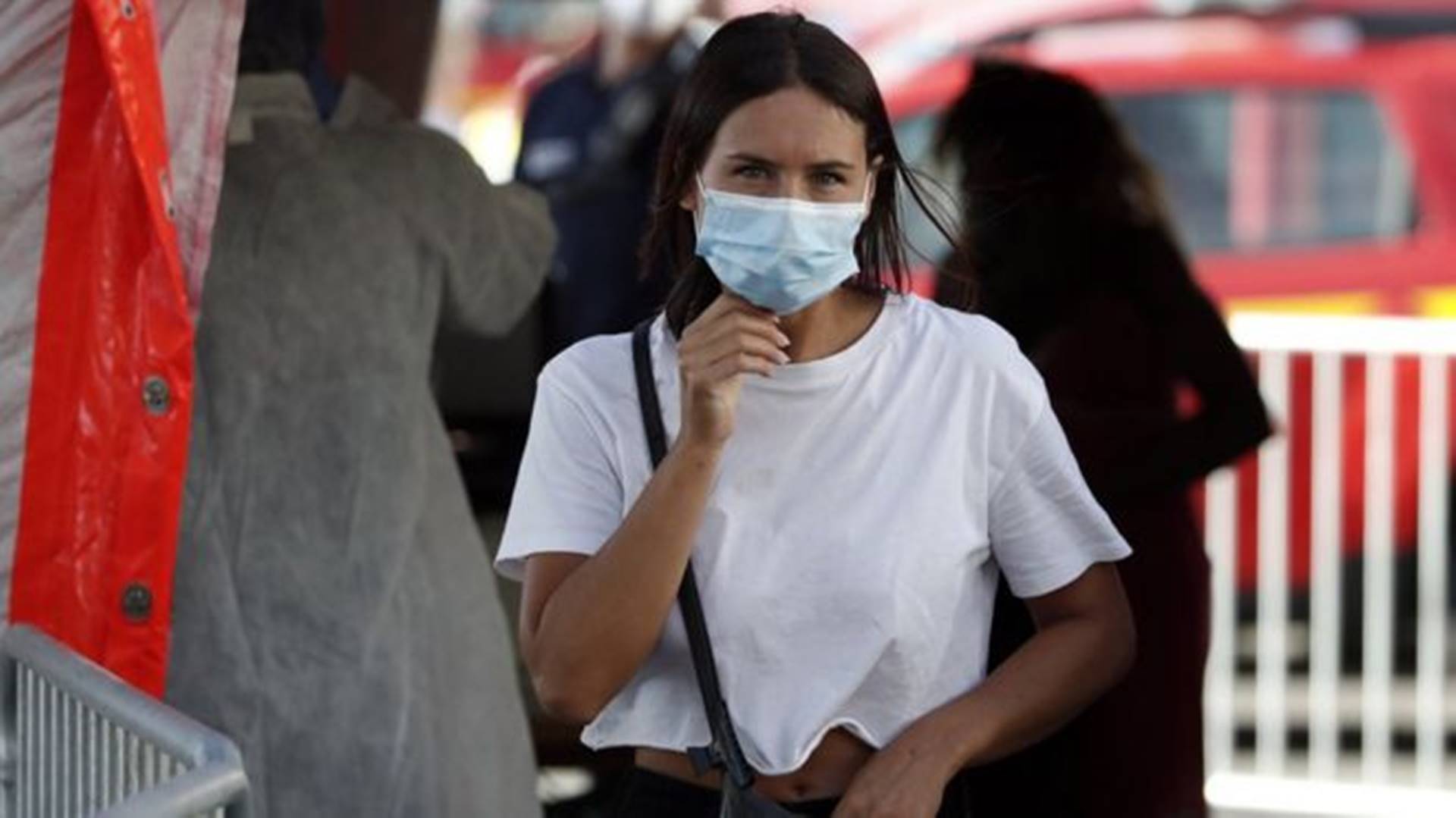Wearing a face-mask in public has become mandatory across Paris and several surrounding areas, amid a surge in Covid-19 cases in France.
The move comes a day after the country recorded 6,111 new infections – its highest number since early May.
The number of “red zones” where the virus is inactive circulation has risen from two to 21.
Hollywood gambles on first major movie release since coronavirus lockdowns
Announcing new local curbs on Thursday, PM Jean Castex said he wanted to avoid another general lockdown.
He said the coronavirus was “gaining ground” across France, and that if the government did not act fast infection growth could become “exponential”.
Despite a sharp rise in cases in recent weeks, daily death tolls have remained low. Overall, more than 30,500 people have died and almost 300,000 have been infected in France.
Want to travel overseas? This website shows where you’re allowed to go during the pandemic
A number of European countries are seeing a surge in new cases, and Germany is also planning tighter rules.
Masks for Paris
The prime minister said wearing a mask in all public places would become mandatory in the capital.
While individual streets and areas of the capital already have rules on wearing face-coverings, this new rule will be far more extensive, covering not only Paris but its inner ring of Seine-Saint-Denis, Hauts-de-Seine, and Val-de-Marne.
From 08:00 on Friday (06:00 GMT), all pedestrians will have to wear face-coverings in public areas, as well as people on bicycles, motorcycles, scooters, and a variety of other mobility vehicles.
Paris is already a red zone, along with the southern area of Bouches-du-Rhône, where France’s second city Marseille made masks compulsory from Wednesday evening.
The whole inner ring is now a red zone too, along with a broad expanse of the southern coastal fringe and the Gironde area around Bordeaux.
Masks will also become part of normal life for French schoolchildren aged 11 and over. The World Health Organization has recommended use of masks in school from the age of 12.
Masks are already required in most enclosed public spaces and will be mandatory in workplaces from next month.
Meanwhile, Health Minister Olivier Véran has promised to step up Covid-19 testing to reach a million tests a week in September, with the aim of making them available to “anyone who needs one and anyone who wants one”.
What has Germany decided?
Masks are also a key part of Germany’s tougher restrictions aimed at curbing a renewed rise in cases.
Although Germany has not seen the scale of Covid-related deaths as many other Western European countries, the federal government and 16 states have reached a draft deal on new measures:
- A minimum €50 (£45) fine will be slapped on anyone breaking rules on face-coverings – in shops, public transport or elsewhere; but one state in the north-west is still holding out against a fine
- Big events will be banned until the end of the year, although regions will be exempt if they have a low infection rate and participants are limited to those areas
- That means there is little chance of spectators returning to Bundesliga football matches
- There will be an end to free tests for holidaymakers returning from high-risk countries after 15 September. Such travelers already have to self-isolate for 14 days.
Health Minister Jens Spahn argues that German labs are reaching capacity and that testing should be more targeted. But Volkmar Weckesser, whose Centogene company conducts tests at Frankfurt airport, told that “we are not even close to reaching capacity”.
Meanwhile, a group called “Querdenken” (Think outside the box) is challenging a Berlin ban on a march on Saturday against Covid-19 restrictions. The protest has already seen 22,000 people sign up.
A march on 1 August attracted around 20,000 people, made up of mainly Covid-deniers and far-right activists.
BBC / Balkantimes.press
Napomena o autorskim pravima: Dozvoljeno preuzimanje sadržaja isključivo uz navođenje linka prema stranici našeg portala sa koje je sadržaj preuzet. Stavovi izraženi u ovom tekstu autorovi su i ne odražavaju nužno uredničku politiku The Balkantimes Press.
Copyright Notice: It is allowed to download the content only by providing a link to the page of our portal from which the content was downloaded. The views expressed in this text are those of the authors and do not necessarily reflect the editorial policies of The Balkantimes Press.

